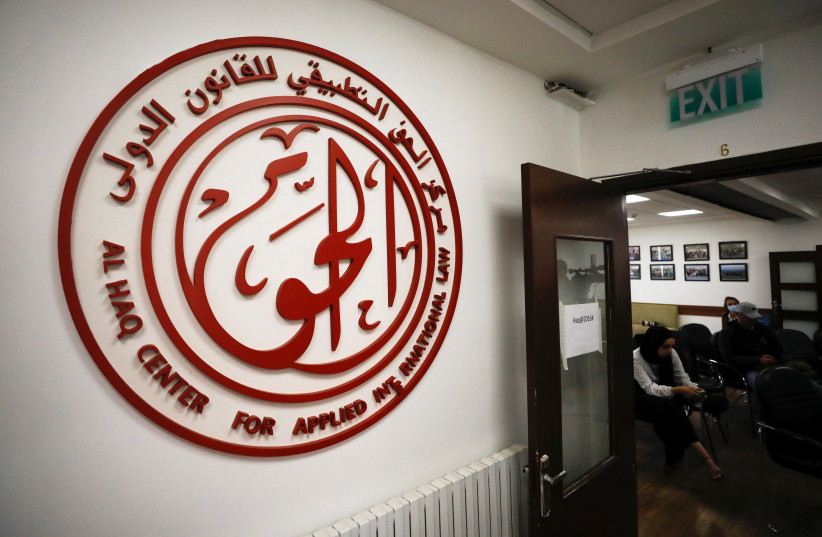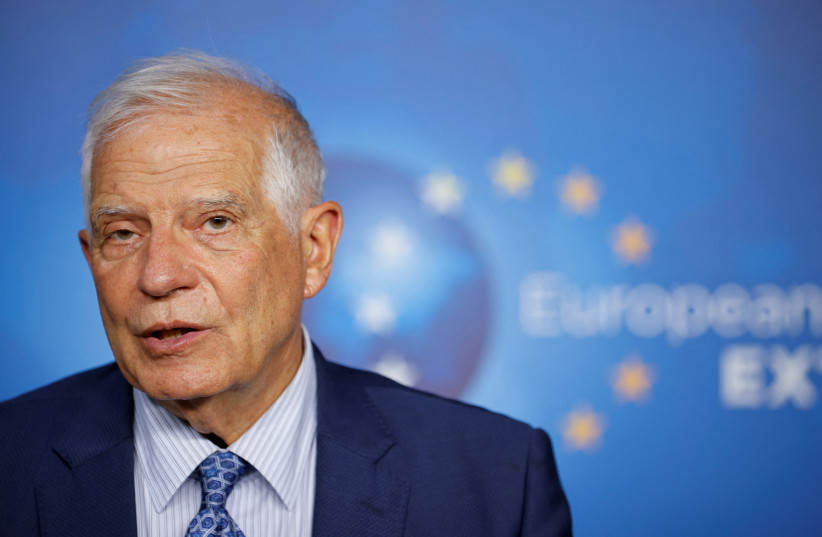European Union Ambassador to Israel Dimiter Tzantchev and diplomats from 19 countries demanded answers from the Foreign Ministry about last week’s IDF raid of the offices of seven Palestinian non-governmental organizations Israel has classified as terror groups.
The meeting was “to raise our deep concerns over the raids on the Palestinian civil society organizations last week,” Tzantchev tweeted after Monday’s meeting with Israeli officials.
“These actions are not acceptable,” he said, adding that “the EU is a firm supporter of free and strong civil society.”
The diplomats who represented 19 European nations said they did not accept Israel’s terror designation, explaining that they had not received any evidence to validate that claim.
“No substantial information was received from Israel so far that would justify reviewing our policy,” Tzantchev stated.
“We will continue to support Palestinian [Civil Society Organizations] that have a role to play in promoting human rights [and] democratic values,” he added.

EU, UN voice concerns over Israel's terror designation for 6 Palestinian NGOs
Tzantchev’s words were in line with the sharp statement European Union foreign policy chief Josep Borrell issued that same day. The United Nations has also condemned the move and the United States has expressed concern.
The IDF raid against the NGOs was the first step taken against them under the auspices of Prime Minister Yair Lapid. It comes less than a month after the EU made a nod in his direction, by agreeing to reconvene the EU-Israel Council, which has not met for the last decade.

The designation itself was issued in October, when former prime minister Naftali Bennett was in office.
It was leveled against Al-Haq, Addameer, the Bisan Center, Defense for Children International-Palestine (DCI-P), the Union of Agricultural Work Committees and the Union of Palestinian Women’s Committees.
The Union of Health Work Committees, which Israel designated as a terror organization in 2020 and which the IDF also raided last week, has not been the focus of the debate.
Israel 'underestimated' EU's opposition to terror designation
Israel has charged that the NGOs are affiliated with the Popular Front for the Liberation of Palestine, which the United States and the European Union have designed as a terror organization.
The EU and US comments on the IDF raid, in which the offices in the Ramallah area were shut down and their materials confiscated, have focused on six NGOs targeted in October.
A diplomatic source told The Jerusalem Post that Israel had underestimated the EU’s feelings on this issue and that the body did not intend to drop the matter.
On Tuesday, three Joint List parliamentarians – party head Ayman Odeh, Ofer Cassif and Aida Touma-Sliman – asked the EU to take action against Israel.
In a letter they wrote to EU ambassadors in Israel, they noted that Article 2 of the Euro-Mediterranean Association Agreement, which helps govern EU-Israel ties, is based “on respect for human rights and democratic principles.”
Israel, the MKs wrote, is “clearly violating the spirit and binding stipulations of the agreement, yet the EU has thus far failed to hold Israel accountable.”
Human rights organizations and NGOs in Israel and abroad have joined together to issue statements against the raid, which is viewed as an attempt by Israel to suppress Palestinian civic society rather than an IDF stand against terror.
A group of 150 international organizations called on the international community to “take all necessary action to support and protect Palestinian human rights defenders and ensure the continuation of their invaluable work.”
A group of 45 Israeli NGOs called on the government on Monday to reverse the terror designation, stating that, “defense of human rights is not terrorism… We repudiate these baseless declarations and call on the international community to pressure Israel to revoke its decision.”
On Monday, one of the seven NGOs, Al-Haq, sent a letter to 80 nations asking for help. It noted it particular that its general director Shawan Jabarin and DCI-P Director-General Khaled Quzmar were under threat of arrest.
Quzmar was questioned by the Shin Bet (Israel Security Agency) for two hours on Sunday and then released, Al-Haq said, adding that on that same day, Jabarin had received a call threatening him with imprisonment.
